The Well-Tempered Ear
Muti to conduct an opera academy in China
Leave a Comment
PLEASE HELP THE EAR. IF YOU LIKE A CERTAIN BLOG POST, SPREAD THE WORD. FORWARD A LINK TO IT OR, SHARE IT or TAG IT (not just “Like” it) ON FACEBOOK. Performers can use the extra exposure to draw potential audience members to an event. And you might even attract new readers and subscribers to the blog.
By Jacob Stockinger
Italian maestro Riccardo Muti (below) — the 83-year-old retired music director of the Chicago Symphony Orchestra and longtime music director of the iconic La Scala Opera House in Milan— will take his workshops for young conductors and musicians to China for the first time this coming November and December.
Muti is a devoted advocate and practitioner of music education, and has led similar academies in: Ravenna and Milan, Italy; Tokyo, Japan; and Seoul, South Korea.
In a story published in Chinese media, Muti explains why he chose China this time. There he will work in the city of Suzhou with the Suzhou Symphony Orchestra and with individual applicants from around the world.
“During the past decades, classical music has gained a large fan base in China, with new concert halls and new symphony orchestras appearing in the country,” Muti adds. “There are also many great Chinese musicians performing around the world — pianists, violinists, singers and conductors — who have become like bridges, bringing our countries closer to each other.”
The repertoire he has chosen to work on is the one-act Italian opera “Cavalleria Rusticana” (Rustic Chivalry) by Pietro Mascagni.
It seems a perfect choice to The Ear. It is shorter and easier to stage than most full-length operas. It uses the Roman Catholic Church and religion as well as other aspects of European and Italian society and culture. This includes the famous “Regina Coeli” or Easter Hymn (below):
The opera itself has beautiful parts for the vocal soloists, the chorus and the orchestral instrumentalists — as you can hear above and in the famously melodic Intermezzo (in the YouTube video at the bottom) that was used in the film “The Godfather.”
Here is a link to the full story from the China Daily newspaper:
https://www.chinadaily.com.cn/a/202404/13/WS661a1d39a31082fc043c1c81.html
You might also recall an earlier blog post about the recent successes of Asian classical musicians:
https://welltempered.wordpress.com/?s=Asian+musicians
When it comes to Western classical music in China, it seems that success keeps building on success.
Tags: #BlogPost, #BlogPosting, #FacebookPost, #FacebookPosting, #YouTubevideo, academy, advocate, alto, Android, Apple, applicant, Arts, Asia, asian, audience, Baidu, baritone, base, bass, beautiful, Beijing, Bilibili, blog, Blog post, blog posting, brass, bridge, bridges, Cavalleria Rusticana, Cello, Chicago, Chicago Symphony Orchestra, China, China Daily, Chinese, chivalry, choice, choral music, chorus, Christ, Christian, Christianity, church, city, Classic FM, Classical music, com, composer, Concert, concert hall, conduct, Conducting, conductor, countries, country, culture, December, devoted, duckduckgo, Easter, Easter hymn, Europe, European, Facebook, Facebook post, Facebook posting, famous, fan base, fans, film, Film score, globe, God, Google, Google Alert, Google Alerts, Google Search, icon, iconic, individual, instrumentalists, intermezzo, Italian, Italy, Jacob Stockinger, Japan, Japanese, Jesus, Korea, La Scala, link, Madison, Madison Symphony Orchestra, Maestro, Mascagni, media, melodic, mezzosoprano, Milan, movie, Music, Music director, Music education, music students, Musician, Muti, Newspaper, November, one-act, online, opera, Orchestra, orchestral, organ, OS, part, percussion, perfect, perform, performer, performing, Pianist, Piano, Pietro Mascagni, practitioner, QQ, Ravenna, recent, Regina Coeli, Religion, repertoire, repertory, retired, Retirement, Riccardo Muti, rustic, Rustic Chivalry, Seoul, share, short, singer, singers, society, soloist, soprano, soundtrack, South Korea, stage, story, strings, Student, success, Suzhou, Suzhou Symphony Orchestra, symphony, symphony orchestra, tag, tenor, The Ear, The Godfather, The Well-Tempered Ear, Tieba, TikTok, Tokyo, U.S., United States, University of Wisconsin-Madison School of Music, University of Wisconsin–Madison, US, Viola, Violin, violinist, vocal, vocal music, voice, Website, WeChat, Weibo, Well-Tempered, Western, Wisconsin, woodwinds, workshop, world, YouTube
Classical music plus tips for watching Monday’s solar eclipse
2 Comments
PLEASE HELP THE EAR. IF YOU LIKE A CERTAIN BLOG POST, SPREAD THE WORD. FORWARD A LINK TO IT OR, SHARE IT or TAG IT (not just “Like” it) ON FACEBOOK. Performers can use the extra exposure to draw potential audience members to an event. And you might even attract new readers and subscribers to the blog.
By Jacob Stockinger
This coming Monday, April 8, will see a rare solar eclipse crossing the United States and visible to varying degrees (below) in different locations. In Madison, it will start at 12:50 p.m. CST, peak at 2:05 and end at 3:20.
It got The Ear to thinking about appropriate classical music to listen to.
But some other information seems more important to convey first:
For last-minute tracking of the eclipse and traveling to see it, here are stories from NPR (National Public Radio) and PBS:
https://www.pbs.org/newshour/science/how-to-watch-the-2024-total-solar-eclipse
And from, MIT (the Massachusetts Institute of Technology), here are tips in the form of a Q&A about how to make the most out of viewing the eclipse:
https://news.mit.edu/2024/qa-brian-mernoff-tips-for-viewing-solar-eclipse-0404
NASA (the National Aeronautics and Space Administration) has some advice about watching the eclipse safely:
https://science.nasa.gov/eclipses/safety
If you want to watch the eclipse in real time from a place where a total eclipse — known as totality — will take place, the PBS NewsHour will live-stream it on YouTube. Here is a link, which also allows you to set up a notification starting at noon on Monday for the real-time broadcast:
A solar eclipse is an event that inspired awe and fear. It caused our pre-historic ancestors to beat the ground with sticks and exchange stories about the wrath of the gods.
These days it leads to even more conspiracy theories by more primitive-minded, far-right conspiracy theorists. Here is an an overview from Rolling Stone magazine of the nonsense that is being promulgated by Alex Jones (below, from Getty Images) and other popular science- and fact-deniers.
The Ear looked for some music to capture the feeling of the eclipse — the mystery and awe when it is happening, and the relief when it is over.
He’s pretty sure that on the radio, internet and elsewhere you will hear excerpts from “The Planets” by Gustav Holst; the “Moonlight” Sonata by Beethoven; maybe Haydn’s “Sunrise” string quartet, “Clair de lune” by Debussy; “Morning Mood” from “Peer Gynt Suite Suite” by Edvard Grieg; “Sunrise” from the “Grand Canyon Suite” by Ferde Grofé; the beautiful sunrise opening of the “Daphnis and Chloe Suite No. 2” by Ravel; and of course the dramatic opening sunrise to “Thus Spake Zarathustra” by Richard Strauss, which was made famous in the movie “2001: A Space Odyssey.”
But The Ear settled on the “Helios Overture” (in the YouTube video at the bottom) by the Danish composer Carl Nielsen. It is a haunting performance by the Royal Concertgebouw Orchestra and the American conductor Alan Gilbert.
Do you have a piece of classical music that you think would be appropriate for watching the eclipse?
The Ear wants to hear.
Tags: #BlogPost, #BlogPosting, #FacebookPost, #FacebookPosting, #YouTubevideo, 2001: A Space Odyssey, 2024, 88.7 FM, 89.9, advice, Alan Gilbert, Alex Jones, AM, America, American, Amsterdam, ancestor, Android, annular eclipse, Apple, appropriate, April, April 8, Arts, astronomy, audience, awe, beautiful, Beethoven, blog, Broadcast, Cello, Central Daylight Time, Chamber music, choral music, Clair de Lune, Classical, Classical music, composer, Concert, Concertgebouw, conservative, conspiracy theory, CST, Danish, Daphnis and Chloe, Debussy, denier, Denmark, different, dramatic, Dutch, Early music, eclipse, Facebook, fact-denier, facts, famous, fear, film, FM, God, gods, Google Alert, Google Search, Grand Canyon, Grieg, Grofe, happen, haunting, Haydn, Helios Overture, idiots, information, Infowars, Internet, Jacob Stockinger, link, live-stream, Ludwig van Beethoven, lunatics, Madison, magazine, Massachusetts Institute of Technology, Microsoft Bing, MIT, Monday, moon, moonlight, Morning Mood, movie, Music, Musica Antiqua, mystery, NASA, National Aeronautics and Space Administration, Netherlands, Nielsen, nonsense, notification, NPR, online, opera, Orchestra, OS, over, Overture, partial, PBS, PBS Newshour, Peer Gynt, peform, performance, Piano, popular, prehistoric, primitive, Radio, rare, Ravel, relief, right-wing, Rolling Stone, royal, Royal Concertgebouw Orchestra, Schubert, science, science-denier, search engine, share, singer, Singing, solar, solar eclipse, Sonata, song, soundtrack, space, stories, story, Strauss, stream, String quartet, Suite, sun, sunrise, symphony, tag, Television, The Ear, The Well-Tempered Ear, Thus Spake Zarathustra, tips, total, totality, TV, U.S., United States, University of Wisconsin-Madison School of Music, University of Wisconsin–Madison, Viola, Violin, vocal music, watch, Well-Tempered, Wisconsin, wisconsin public radio, Wolfgang Amadeus Mozart, WORT, WORT FM, WPR, wrath, YouTube
Klaus Mäkelä, 28, is the new music director of the Chicago Symphony Orchestra
6 Comments
PLEASE HELP THE EAR. IF YOU LIKE A CERTAIN BLOG POST, SPREAD THE WORD. FORWARD A LINK TO IT OR, SHARE IT or TAG IT (not just “Like” it) ON FACEBOOK. Performers can use the extra exposure to draw potential audience members to an event. And you might even attract new readers and subscribers to the blog.
By Jacob Stockinger
It seems to The Ear that another young conducting superstar is in the making.
I’m talking about the 28-year-old Finnish conductor Klaus Mäkelä (below, in a photo by Marco Borggreve), who just yesterday was named the successor to 82-year-old Riccardo Muti as the music director of the Chicago Symphony Orchestra, starting in 2027.
Chances are good that the talented, photogenic and charismatic Mäkelä — ignore the umlauts and “ke” is pronounced kay — who has had a meteoric rise will eventually join the company of Gustavo Dudamel and Yannick Nézet-Séguin as an heir to such celebrated conductors as Leonard Bernstein and Herbert von Karajan, then Claudio Abbado, Michael Tilson Thomas and Marin Alsop.
The Ear would love to post stories from the New York Times, the Washington Post or the Chicago Tribune. But they all hide their online stories behind a paywall.
Here is another story, from ABC-TV in Chicago and the Associated Press, that has all the essentials and some extra background:
In the YouTube video at the bottom, you can see his 2-minute video made specifically to introduce himself on the occasion of his selection to lead the CSO. He talks about what he likes about the world-famous orchestra and why he wanted to accept the permanent position after guest conducting the CSO
And here is an excerpt of Mäkelä conducting the Paris Orchestra in Carnegie aHall last month. His reading of Igor Stravinsky’s “The Firebird” — on an all-Stravinsky program with “The Rite of Spring — raised the neck hair on The Ear.
You can under how the young Finn has developed a reputation for both spontaneous energy and sonic clarity.
What do you think of Klaus Mäkelä becoming the music director of the Chicago Symphony Orchestra?
Have you heard him conduct? What did you think?
Would you go to Chicago to hear him conduct?
Will he become a worthy successor to such Chicago luminaries as Muti, Daniel Barenboim, George Solti and Fritz Reiner?
The Ear wants to hear.
Tags: #BlogPost, #BlogPosting, #FacebookPost, #FacebookPosting, #YouTubevideo, 2024, 2027, ABC-TV, alerts, Amsterdam, AP, Apple, Apple Music, Apple Music Classical, Arts, Asia, asian, Associated Press, audience, background, Beethoven, Bernard Haitink, Bernstein, Bing, blog, Carnegie Hall, celebrated, Cello, charismatic, Chicago, Chicago Symphony Orchestra, China, Chinese, choral music, clarity, Classical music, Claudio Abbado, composer, Concert, Concertgebouw, concerto, Conducting, conductor, CSO, Daniel Barenboim, debut, energy, essential, Europe, European, Facebook, Finland, Finn, Finnish, Fritz Reiner, George Solti, global, globe, Google Alert, guest conductor, Gustavo Dudamel, handsome, hear, Herbert von Karajan, Igor Stravinsky, Jacob Stockinger, Karajan, Klaus Makela, Klaus Mäkalä, Leonard Bernstein, like, link, Ludwig van Beethoven, Marin Alsop, Mäkelä, medici.tv, meteoric, Michael Tilson Thomas, Microsoft, MTT, Music, Music director, Netherlands, New York Times, Norway, online, opera, Orchestra, Orchestre de Paris, OS, Oslo, Paris, Paris Orchestra, performer, photo, photogenic, Piano, program, Riccardo Muti, rise, Rite of Spring, rizz, Safari, Scandinavia, Scandinavian, share, Sonata, spontaneous, story, Stravinsky, successor, superstar, symphony, tag, talented, The Ear, The Firebird, The Well-Tempered Ear, think, United States, University of Wisconsin-Madison School of Music, University of Wisconsin–Madison, Viola, Violin, vocal music, Washington Post, Website, Wisconsin, Wolfgang Amadeus Mozart, world, worldwide, Yannick Nézet-Séguin, you, young, YouTube
Today is World Piano Day — so play, listen, watch, celebrate
1 Comment
PLEASE HELP THE EAR. IF YOU LIKE A CERTAIN BLOG POST, SPREAD THE WORD. FORWARD A LINK TO IT OR, SHARE IT or TAG IT (not just “Like” it) ON FACEBOOK. Performers can use the extra exposure to draw potential audience members to an event. And you might even attract new readers and subscribers to the blog.
By Jacob Stockinger
World Piano Day — established in 2015 — falls on the 88th day of the year because the standard piano keyboard has 88 keys.
Because 2024 is a Leap Year, World Piano Day is being celebrated a day later than usual — on today, March 28.
For more background and past playlists, see:
https://en.wikipedia.org/wiki/Piano_Day
There are lots of free celebrations online, to say nothing of just sitting down at a piano and playing or listening to someone else play or going to your library of CDs and LPs or using your streaming service.
Here is a list of live international events from March 12-April 7, complete with information links, to concerts and other events marking Piano Day around the world.
Some presenters have put together their own special celebrations. DG is offering a 30-day free trial to its Stage+ streaming site to mark the occasion.
Deutsche Grammophon, the world’s oldest classical record company, has a terrific stable of prize-winning, critically acclaimed pianists, includes Maurizio Pollini who died last Saturday, as well as Lang Lang, Yuja Wang, Vikingur Olaffson, Maria Joao Pires, Seong-Jin Cho, Grigory Sokolov, Alice Sara Ott, Daniil Trifonov, Hélène Grimaud and Bruce Liu.
Check it out. Here is a link to DG’s celebration:
You can also find many things to watch and hear — concerts, documentaries — for this year and from past year of YouTube:
https://www.youtube.com/results?search_query=World+Piano+Day
And at the bottom, from World Piano Day 2023, is a YouTube video with 88 minutes of piano music from masters old and current — including Vladimir Horowitz and Arthur Rubinstein — to celebrate World Piano Day:
Will you celebrate World Piano Day?
Do you play the piano or did you take piano lessons?
Do you have a favorite pianist?
Do you have a favorite composer and favorite piece for the piano?
The Ear wants to hear.
Tags: #BlogPost, #BlogPosting, #FacebookPost, #FacebookPosting, #Prize-Winning, #YouTubevideo, 2023, 2024, 88, acclaim, Adfrica, African, Apple, Apple Music, Apple Music Classical, Arrau, Arts, Ashkenazy, asian, audience, Barenboim, Baroque, Beethoven, black, blog, Bruce Liu, CD, celebrate, celebration, Chamber music, China, Chinese, Cho, Chopin, Classical music, Columbia, composer, Concert, concerto, critic, critical, critically acclaimed, day, Decca, Deutsche Grammophon, DG, documentary, Early music, establish, Europe, European'Asia, event, Facebook, favorite, Fujita, Gilels, globe, Google, Google Search, Grigory Sokolov, Grimaud, hear, Helene Grimaud, Horowtz, Hough, Iceland, Icelandic, international, Jacob Stockinger, Japan, Japanese, Johann Sebastian Bach, Keyboard, keys, Kissin, Korean, Lang Lang, Leap Year, Levit, liberty, library, Lim, link, listen, Liu, LP, Ludwig van Beethoven, Madison, Mao, Mao Fujita, Maria Joao Pires, Maurizio Pollini, Mozart, Music, music students, Naxos, ok, Orchestra, OS, Ott, Perahia, Philips, Pianist, Piano, piano lessons, piano music, piece, Pires, play, playlist, Polish, Pollini, popular, RCA, repertoire, repertory, Richter, Rubinstein, Russia, Russian, Schiff, share, Sokolov, Sonata, SONY, Sony Classical, South America, South American, South Korea, South Korean, stage, standard, stream, streaming, streaming service, symphony, tag, The Ear, The Well-Tempered Ear, today, Trifonov, Uchida, United States, universal, University of Wisconsin–Madison, Van Cliburn, Vikingur Olafsson, Wang, Well-Tempered, white, Wikipedia, Wisconsin, Wolfgang Amadeus Mozart, Wong, world, World Piano Day, year, YouTube, Yuja Wang, Yunchan Lim
Here are Gramophone’s 12 best recordings for March
2 Comments
PLEASE HELP THE EAR. IF YOU LIKE A CERTAIN BLOG POST, SPREAD THE WORD. FORWARD A LINK TO IT OR, SHARE IT or TAG IT (not just “Like” it) ON FACEBOOK. Performers can use the extra exposure to draw potential audience members to an event. And you might even attract new readers and subscribers to the blog.
By Jacob Stockinger
Gramophone magazine, based in the UK, is probably the best and most influential periodical about classical music for the general public.
Every month, the editors pick a recording of the month with 11 others to make up a dozen great opportunities for listening. The reviews — which often favor British performers and composers — include links to excerpts on streaming services.
Would you like to hear the prolific super-virtuoso pianist Marc-André Hamelin play his own compositions, including his Variations on a Theme of Paganini? See the YouTube video at the bottom for an astonishing display of pianism.
Or an obscure opera by Leos Janacek?
Or historic recordings of the violinist Joseph Szigeti?
Or the contemporary composer Nicola LeFanu?
Maybe a spring bouquet of songs about flowers?
Then check out this month’s choices for the Best Of.
And if these reviews interest you, check out the other stories and reviews at the bottom of the Gramophone webpage.
Here is a link:
Tags: #BlogPost, #BlogPosting, #FacebookPost, #FacebookPosting, #WebPage, #YouTubevideo, 2024, Apple, Apple Music, Apple Music Classical, Arts, Asia, asian, astonishing, audience, Baroque, Bartok, Beethoven, Belgium, best, best of, Bloch, blog, bouquet, British, Britten, Canada, Canadian Broadcast System, CBC, Cello, Chamber music, choral music, Classical music, composer, Concert, concerto, conductor, contemporary composer, contemporary music, critic, Curtis Institute, Curtis Institute of Music, Debussy, display, Dvorak, Early music, Europe, Facebook, favor, features, flowers, Google, Google Alert, Google Search, Gramophone, Great Britain, Handel, Haydn, hear, historic, Hungarian, Hungary, influence, influential, interest, IOS, Ives, Jacob Stockinger, Jacqueline Fontyn, Janacek, Johann Sebastian Bach, Joseph Szigeti, label, Lassus, Lera Auerbach, link, Living composer, Ludwig van Beethoven, magazine, Marc-André Hamelin, march, Marin Alsop, Milhaud, month, Mozart, Music, music review, New Music, Nicola LeFanu, opera, Orchestra, Paganin, performance, performer, periodical, pianism, Pianist, Piano, Piano Trio, Prokofiev, prolific, public, recorded music, reviews, Russia, Russian, share, singer, Singing, Sonata, song, Spring, stories, story, Stravinsky, stream, streaming, symphony, tag, technique, The Ear, theme and variations, trio, UK, United States, vaughan williams, Viola, Violin, violinist, virtuosic, virtuoso, vocal music, Weinberg, Wolfgang Amadeus Mozart, you, YouTube
Wisconsin Chamber Orchestra’s new CD and Friday night concert champion racial diversity
1 Comment
PLEASE HELP THE EAR. IF YOU LIKE A CERTAIN BLOG POST, SPREAD THE WORD. FORWARD A LINK TO IT OR, SHARE IT or TAG IT (not just “Like” it) ON FACEBOOK. Performers can use the extra exposure to draw potential audience members to an event. And you might even attract new readers and subscribers to the blog.
By Jacob Stockinger
“Musical Landscapes in Color” is a five-year initiative by the Wisconsin Chamber Orchestra with its award-winning, composer-in-residence Dr. William Banfield (below), who has produced a body of work in the past 25 years that includes music, books, teaching and creative work that contributes to contemporary arts leadership.
The cultural undertaking aims to elevate the voices of an array of living, diverse composers of color throughout the United States. The project represents a significant step towards diversifying the classical music landscape through compositions and audiences, according to the WCO.
The first of several installments (below) — “Harmony in Black” — has just been released by Albany Records.
The album is available in a physical format and for digital streaming on Spotify, Apple Music, Amazon Music and YouTube, where you can sample it at the bottom.
Performed and recorded live on Friday, Oct. 13, 2023, it features excerpts from three compositions: one by four-time Grammy nominee Patrice Rushen entitled “Mine Eyes Have Seen The Glory”; and two by renowned composer Banfield entitled “Testimony of Tone, Tune, and Time” and “Symphony No. 8: Here I Stand.”
Their three compositions do not quote spiritual melodies directly, but do embody the spirit of those songs by drawing either on direct quotations of speeches or writings.
Multi-Grammy-nominated artist Patrice Rushen (below) is admired by many for her groundbreaking achievements including serving as Musical Director for the 46th, 47th and 48th Annual Grammy Awards.
CONTENTS:
Patrice Rushen: Movement 1: ”Mine Eyes Have Seen the Glory”
Dr. William Banfield: (starting at 8:10): “Testimony of Tone, Tune and Time” — Symphony No. 8
Performers are: retired City of Madison, Dane County and State of Wisconsin Judge Paul Higginbotham (below) as the narrator; saxophonist Matthew Sintchak; and the Wisconsin Chamber Orchestra under conductor and music director Andrew Sewell.
For more background, including a release reception, go to a story in Madison 365:
A WORLD PREMIERE THIS FRIDAY NIGHT
The project continues with a concert that takes place this Friday night, March 22, at 7:30 p.m. in the Capitol Theater of the Overture Center features the WORLD PREMIERE of Banfield’s Symphony No. 14 “Revelation.”
Guest artists include the Madison Youth Choirs, the Festival Choir of Madison and the Edgewood College Chamber Singers. Soloists include soprano Angela Brown, tenor Ben Johnson and baritone William Volmar.
Opening the 90-minute concert is Symphony No. 1 in G major, Op. 4 (1901) by British composer Edwin York Bowen, whose music shows influences of Rachmaninov, Chopin and Tchaikovsky.
Tickets are still available and cost $34.50, $75 and $95. For more information and tickets, go to: https://wcoconcerts.org/
Have you heard Banfield’s music?
What do you think of it?
The Ear wants to hear.
Tags: #BlogPost, #BlogPosting, #Composer-in-Residence, #FacebookPost, #FacebookPosting, #YouTubevideo, Abraham Lincoln, achievement, African, African American, African-American music, Albany Records, Album, Amazon, Amazon Music, American, Andrew Sewell, Android, Angela Brown, appellate, Apple Music, Apple Music Classical, Arts, asian, audience, award, baritone, Ben Johnson, black, Black composers, black music, blog, books, box office, British, Capitol Theater, CD, Cello, Chamber music, champion, Chopin, choral music, circuit court, city of Madison, civil rights, Classical music, color, Compact Disc, composer, composers of color, Composition, Concert, contemporary, contemporary composers, contemporary music, cost, court, creative, Dane County, digital, diversity, doctor, Dr., Edgewood College, Edgewood College Chamber Singers, Edwin York Bowen, England, English, enslaved, enslaved people, entitled, Europe, excerpts, Facebook, Festival Choir, format, Friday, Friday night, Google, Google Alert, Google Search, Grammy, groundbreaking, harmony, Harmony in Black, influence, information, initiative, IOS, it, Jacob Stockinger, judge, landscape, Latino, leadership, Lincoln, link, live, live music, Live Recording, living composers, Madison, Madison 365, Madison Youth Choirs, Madison365, Madison365.com, Martin Luther King, Martin Luther King Jr, Matthew Sintchak, melodies, melody, Mine Eyes Have Seen The Glory, MLK, movement, Music, musical, narrator, nominee, online, opera, Orchestra, Overture Center, Patrice Rushen, Paul Higgenbotham, physical, Polish, Polish composer, post, posting, premiere, price, project, quotations, race, Rachmaninoff, Rachmaninov, racism, recording, retired, Revelation, Russia, Russian, sample, Saxophone, saxophonist, share, sing, singer, Singing, slave, slavery, soloist, song, soprano, speech, speeches, spirit, spiritual, Spotify, State of Wisconsin, streamed music, streaming, streaming service, symphony, tag, Tchaikovsky, Teacher, teaching, tenor, testimony, The Ear, think hear, tickets, time, title, tone, tune, Twitter, U.S., UK, United States, Viola, Violin, vocal music, vocalist, WCO, Website, William Banfield, William Volmar, Wisconsin, Wisconsin Chamber Orchestra, work, works, world, world premiere, writings, X, year, York Bowen, you, YouTube
Why did obituaries for pop star Eric Carmen omit Rachmaninoff?
Leave a Comment
By Jacob Stockinger
The American songwriter and pop singer Eric Carmen (below) died in his sleep at 74 last Sunday. The cause has still not been revealed.
I haven’t checked out all the obituaries for Carmen, who fronted as the lead singer for The Raspberries before striking out on his own prolific and profitable career.
In the obits I did sample, I heard how the 2001 movie “Bridget Jones’s Diary” used Carmen’s “All By Myself” (1975) — with Renée Zellwegger on drums in the staring role — at the beginning of the hit film.
I heard how Céline Dion scored a huge hit with her version of the same song.
I heard praise quoted from the American superstar horror author, and sometimes amateur rock band member, Stephen King.
But all the obituaries thatI read on the web, saw on TV and heard on the radio omitted a central element of Carmen’s career in soft rock: his “theft” or “borrowing” — depending on what you think of his justification and the results of the lawsuit he lost — of music by Sergei Rachmaninoff (below).
Indeed, Carmen’s two biggest hits owe their irresistible melodies and harmonies — their tunes, if you will — to the Russian late Romantic composer (1873-1943).
Carmen — who was a trained classical pianist — certainly had a good ear, as his year-to-year, back-to-back hits demonstrated.
And he wasn’t ashamed to use what that ear heard and what he liked.
“All By Myself” uses a theme from the second movement of Rachmaninoff’s Piano Concerto No. 2 (1901). The main melody of the last movement also gave rise to the often recorded popular song “Full Moon and Empty Arms.”
Carmen’s “Never Gonna Fall in Love Again” (1976) uses the main theme from the slow movement of Rachmaninoff’s Symphony No. 2 (1907).
If you liked Carmen’s songs, you just might like the original Rachmaninoff works, if you don’t already know them.
Here is a link to a story by Cynthia Dickison for yourclassical.org that not only recounts what happened with the lawsuit but also — with YouTube videos — offers comparisons between the original Rachmaninoff and Carmen’s reworkings.
https://www.yourclassical.org/story/2024/03/12/eric-carmen-sergei-rachmaninoff
Chances are very good that you will also hear the complete Rachmaninoff works on radio stations and in live performance a lot sooner and certainly a lot longer than you will hear Eric Carmen’s music.
Did you know about Eric Carmen’s “use” of Rachmaninoff?
What do you think of it?
What do you think it was ignored in obituaries?
The Ear wants to hear.
Tags: #BlogPost, #BlogPosting, #FacebookPost, #FacebookPosting, #SongWriter, #YouTubevideo, 2001, All By Myself, Amazon, America, American, Apple, Arts, audience, back, Berlin Philharmonic, blog, borrow, borrowing, Bridget Jones' Diary, Bridget Jones's Diary, Carmen, Céline Dion, certainly, Classical music, complete, composer, Concert, concerto, copyright, credit, Cynthia Dickison, Daniil Trifonov, dead, death, die, drums, ear, Eric Carmen, Facebook, film, fine, Full Moon and Empty Arms, Google, Google Alert, harmony, hear, hit, Hollywood, Horror, ignore, irresistible, Jacob Stockinger, justification, law, lawsuit, lead singer, link, live music, live performance, Lorin Maazel, Madison, melody, movement, movie, Music, Never Gonna Fall in Love Again, obit, obituary, online, Orchestra, OS, Philadelphia Orchestra, Pianist, Piano, piracy, plagiarism, pop, pop music, popular, power pop, Rachmaninoff, Rachmaninov, Radio, read, recorded music, reworking, Rock, rock music, royalities, royalty, Russia, Russian, sample, see, Sergei Rachmaninoff, Sergei Rachmaninov, share, Sleep, Slow movement, soft, star, station, steal, Stephen King, superstar, symphony, tag, The Ear, Theft, theme, tune, TV, U.S., United States, University of Wisconsin-Madison School of Music, University of Wisconsin–Madison, use, Website, Wisconsin, Yannick Nézet-Séguin, year, yourclassical.org, YouTube
Is impromptuing the impromptu ok?
2 Comments
PLEASE HELP THE EAR. IF YOU LIKE A CERTAIN BLOG POST, SPREAD THE WORD. FORWARD A LINK TO IT OR, SHARE IT or TAG IT (not just “Like” it) ON FACEBOOK. Performers can use the extra exposure to draw potential audience members to an event. And you might even attract new readers and subscribers to the blog.
By Jacob Stockinger
Recently, The Ear heard an unusual version of the very familiar Fantaisie-Impromptu for solo piano by Chopin.
It was played by the 35-year-old, prize-winning Russian pianist Pavel Kolesnikov (below). You can hear his performance in the YouTube video at the bottom.
What made it unusual is that the pianist took liberties and added passing notes or runs and a melodic overlay to part of it.
It seemed odd at first.
Why mess with Chopin, who was such a meticulous crafter of beauty?
But when you think about it, it makes a certain sense.
It is, after all, an impromptu. And an impromptu is based on and suggests improvisation.
So why not impromptu the impromptu? Why not add some extra spontaneity or variation, since many impromptus take the form of a theme with variations and elaborations.
These days performers are even expected to elaborate the Baroque repertoire, especially Bach and Handel. And it is becoming standard practice to do so with Mozart’s piano sonatas and concertos.
Now the Fantaisie-Impromptu is by far the most popular of Chopin’s four impromptus, no doubt in part because its lovely middle section melody inspired the classic Vaudeville pop song “I’m Always Chasing Rainbows.”
But the Fantaisie-Impromptu, the last composed, is The Ear’s least favorite of the four impromptus that Chopin wrote. And Chopin apparently didn’t like it much either. He wanted it to remain unpublished and destroyed.
It made me want to know: What might the same pianist do with the other three great impromptus by Chopin?
Or the famous ones by Schubert and the less famous ones by Fauré?
Listen to the 5-minute performance and tell The Ear what you think of the ornamented version that Kolesnikov plays?
Which one of four is your favorite Chopin impromptu?
What impromptus by Schubert and Fauré do you especially like? Would changing the score work with them?
What other impromptus by other composers do you suggest listening to and playing — and perhaps even ornamenting?
The Ear wants to hear.
Tags: #BlogPost, #BlogPosting, #FacebookPost, #FacebookPosting, #Prize-Winning, #YouTubevideo, Apple, Arts, audience, Bach, Baroque, beauty, Beethoven, blog, Cello, change, Chopin, choral music, Classical music, composer, Concert, concerto, Craft, Early music, elaboration, eloaborate, Facebook, famous, Fantaisie-Impromptu, Faure, favorite, Google, Google Alert, great, Handel, hear, impromptu, improvisation, improvise, Jacob Stockinger, Johann Sebastian Bach, kliberty, liberties, link, listen, Ludwig van Beethoven, Madison, melody, mess, Mozart, Music, odd, opera, Orchestra, ornament, ornamentation, OS, Pavel Kolesnikov, performance, Pianist, Piano, play, pop music, popular, publish, repertoire, repertory, Russia, Russian, Schubert, score, sense, share, solo]performer, Sonata, spontaneity, symphony, tag, The Ear, theme, think, United States, University of Wisconsin-Madison School of Music, University of Wisconsin–Madison, unpublished, variations, Vaudeville, version, Viola, Violin, vocal music, want, Wisconsin, Wolfgang Amadeus Mozart, you, YouTube
FREE birthday bash for Johann Sebastian Bach is this Saturday in Madison
4 Comments
PLEASE HELP THE EAR. IF YOU LIKE A CERTAIN BLOG POST, SPREAD THE WORD. FORWARD A LINK TO IT OR, SHARE IT or TAG IT (not just “Like” it) ON FACEBOOK. Performers can use the extra exposure to draw potential audience members to an event. And you might even attract new readers and subscribers to the blog.
By Jacob Stockinger
The Ear thinks of this week’s Bach Around the Clock — which runs March 6-10 — as a double celebration.
The primary one is to mark the 339th birthday of composer Johann Sebastian Bach (below, March 20, 1685-July 28, 1750), whom many consider to be the Big Bang of Western classical music.
The second celebration is to honor the late Madison violist Marika Fischer Hoyt (below), who with help resurrected Bach Around the Clock in Madison after it had been dropped by Wisconsin Public Radio.
Talented, hard-working and congenial, Fischer — who died a year ago of cancer — was a fixture of the local music scene. She was a member of the Wisconsin Chamber Orchestra and spent 20 years playing in the Madison Symphony Orchestra. An outstanding chamber musician, she also helped found and played in the Ancora String Quartet.
An avid proponent of early music using period instruments and historically informed performance practices, Fischer Hoyt helped found and play in the weekly free Just Bach concerts. She performed regularly with the Madison Bach Musicians and with an early music string group she helped found, Sonata à Quattro.
Here is a link to a complete schedule on the BATC website:
The Ear thinks Marika would be very pleased and proud of this year’s event.
It will feature Bach’s original choral and instrumental music in many genres and transcriptions. Soloists and groups of varying sizes will take part. And Bach’s music — so central to the repertoire and all levels of musicianship — will be performed by students (below are members of the Suzuki Strings), by amateurs and by professionals (in the YouTube video at the bottom) — making BATC a truly community-wide celebration of Bach.
The hours for the Birthday Bash concert, which used to run 12 hours, have been cut back to a reasonable and accessible 10 a.m.-5 p.m. at St. Andrew’s Episcopal Church, 1833 Regent St., on Madison’s near west side. But a birthday cake will still be cut at the end.
And in case you want to duck in and out or catch certain performances or performers, here is a full program schedule for Saturday:
https://drive.google.com/file/d/1CIRby29h6wZjyngZgyMPpTrLNiMC_1OR/view
You can find links to all other events and programs — printed in blue — on the main website for the March 6-10 festival.
Performances by performers in their own homes and studios will air online as part of the Virtual Festival held of BATC’s YouTube channel, starting at midnight on this Sunday, March 10. Its runs without a time limit and can be accessed worldwide.
Here is a link to the YouTube channel, which also has past performances
https://www.youtube.com/channel/UCHBRPHSGd_fNECp-qrWsqlQ
Have you attended or heard other Bach Around the Clocks?
What do you think of the celebration?
The Ear wants to hear.
Tags: #BlogPost, #BlogPosting, #FacebookPost, #FacebookPosting, #GoogleAlert, #Hard Work, #YouTubevideo, 2021, 2022, 2023, 2024, accessible, Ancora String Quartet, Android, Arts, attend, Bach Around the Clock, Baroque, BATC, birthday, blog, Brain, cake, cancer, Cantata, celebration, Cello, central, Chamber music, choral music, chorus, church, Classical music, clavichord, community, complete, composer, Concert, concerto, congenial, cut, dead, death, die, died, Early music, Episcopal, event, Facebook, festival, free, fugue, genre, Google, Google Alert, group, harpsichord, hear, historically informed performance practices, Home, honor, instrument, instrumental, Jacob Stockinger, Johann Sebastian Bach, Keyboard, link, Madison, Madison Bach Musicians, Madison Symphony Orchestra, Marika Fischer Hoyt, memory, Music, Musician, musicianship, online, Orchestra, organ, original, OS, Overture, Overture Center, partita, Passion, performance, performer, period instruments, Pianist, Piano, Prelude, program, Protestant, reasonable, repertoire, repertory, share, singer, Singing, soloist, Sonata, Sonata à Quattro, Spple, St. Andrew's Episcopal Church, String quartet, strings, studio, Suite, Suzuki, Suzuki Strings, symphony, tag, talent, The Ear, transcription, tumor, United States, University of Wisconsin-Madison School of Music, University of Wisconsin–Madison, Viola, Violin, violist, virtual, vocal music, volinist, Website, Wisconsin Chamber Orchestra, wisconsin public radio, worldwide, you, YouTube, ytalented
- May 2024
- April 2024
- March 2024
- February 2024
- January 2024
- December 2023
- November 2023
- October 2023
- September 2023
- August 2023
- July 2023
- June 2023
- May 2023
- April 2023
- March 2023
- February 2023
- January 2023
- December 2022
- October 2022
- September 2022
- June 2022
- May 2022
- April 2022
- March 2022
- July 2021
- June 2021
- May 2021
- April 2021
- March 2021
- February 2021
- January 2021
- December 2020
- November 2020
- October 2020
- September 2020
- August 2020
- July 2020
- June 2020
- May 2020
- April 2020
- March 2020
- February 2020
- January 2020
- December 2019
- November 2019
- October 2019
- September 2019
- August 2019
- July 2019
- June 2019
- May 2019
- April 2019
- March 2019
- February 2019
- January 2019
- December 2018
- November 2018
- October 2018
- September 2018
- August 2018
- July 2018
- June 2018
- May 2018
- April 2018
- March 2018
- February 2018
- January 2018
- December 2017
- November 2017
- October 2017
- September 2017
- August 2017
- July 2017
- June 2017
- May 2017
- April 2017
- March 2017
- February 2017
- January 2017
- December 2016
- November 2016
- October 2016
- September 2016
- August 2016
- July 2016
- June 2016
- May 2016
- April 2016
- March 2016
- February 2016
- January 2016
- December 2015
- November 2015
- October 2015
- September 2015
- August 2015
- July 2015
- June 2015
- May 2015
- April 2015
- March 2015
- February 2015
- January 2015
- December 2014
- November 2014
- October 2014
- September 2014
- August 2014
- July 2014
- June 2014
- May 2014
- April 2014
- March 2014
- February 2014
- January 2014
- December 2013
- November 2013
- October 2013
- September 2013
- August 2013
- July 2013
- June 2013
- May 2013
- April 2013
- March 2013
- February 2013
- January 2013
- December 2012
- November 2012
- October 2012
- September 2012
- August 2012
- July 2012
- June 2012
- May 2012
- April 2012
- March 2012
- February 2012
- January 2012
- December 2011
- November 2011
- October 2011
- September 2011
- August 2011
- July 2011
- June 2011
- May 2011
- April 2011
- March 2011
- February 2011
- January 2011
- December 2010
- November 2010
- October 2010
- September 2010
- August 2010
- July 2010
- June 2010
- May 2010
- April 2010
- March 2010
- February 2010
- January 2010
- December 2009
- November 2009
- October 2009
- September 2009
- August 2009
Archives
- 2,493,305 hits
Blog Stats
Recent Comments
| welltemperedear on What do you think of the… | |
| Scott on What do you think of the… | |
| welltemperedear on Yunchan Lim’s Chopin etudes ar… | |
| bratschespeilerin on What do you think of the… | |
| MARVIN P WICKENS on Yunchan Lim’s Chopin etudes ar… |
Tags
#BlogPost #BlogPosting #ChamberMusic #FacebookPost #FacebookPosting #MeadWitterSchoolofMusic #TheEar #UniversityofWisconsin-Madison #YouTubevideo Arts audience Bach Baroque Beethoven blog Cello Chamber music choral music Classical music Compact Disc composer Concert concerto conductor Early music Facebook forward Franz Schubert George Frideric Handel Jacob Stockinger Johannes Brahms Johann Sebastian Bach John DeMain like link Ludwig van Beethoven Madison Madison Opera Madison Symphony Orchestra Mead Witter School of Music Mozart Music New Music New York City NPR opera Orchestra Overture Center performer Pianist Piano post posting program share singer Sonata song soprano String quartet Student symphony tag The Ear United States University of Wisconsin-Madison School of Music University of Wisconsin–Madison Viola Violin vocal music Wisconsin Wisconsin Chamber Orchestra wisconsin public radio Wolfgang Amadeus Mozart YouTube
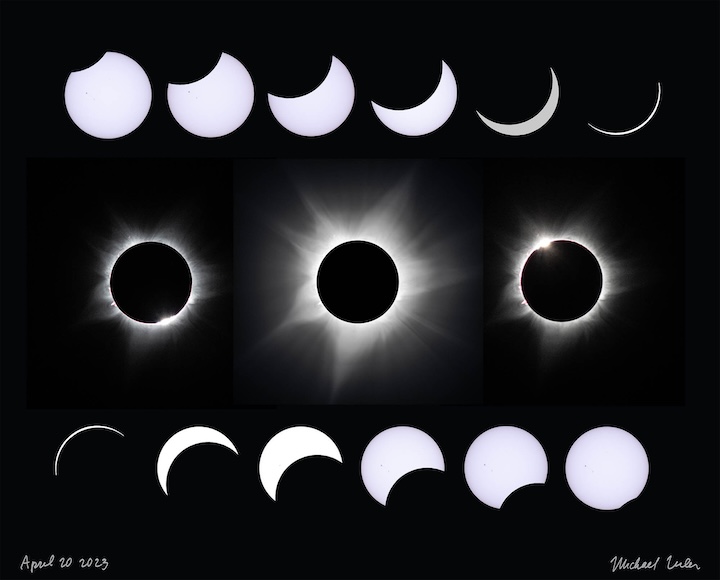

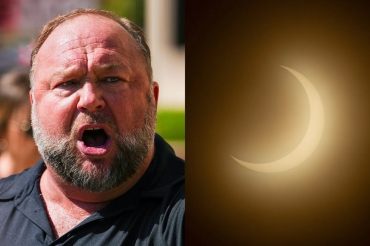


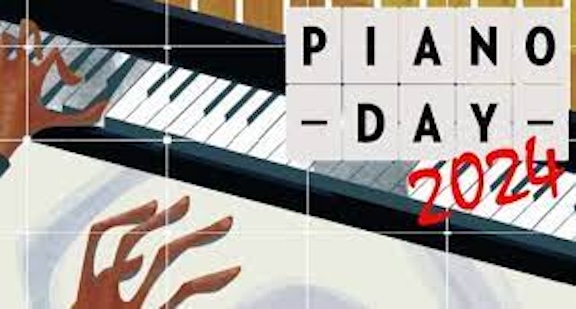
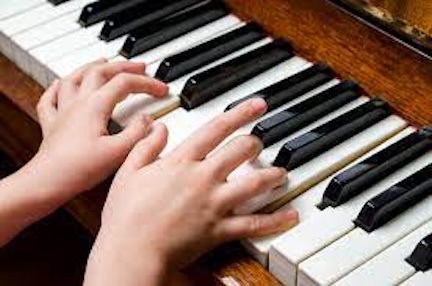
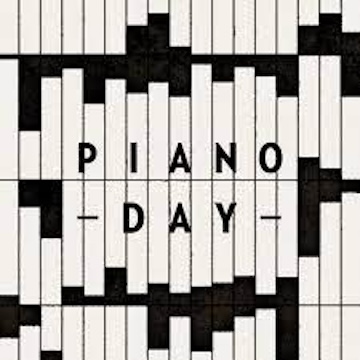













Watch ‘The Last Repair Shop’ — the Oscar-winning short documentary about music education
2 Comments
PLEASE HELP THE EAR. IF YOU LIKE A CERTAIN BLOG POST, SPREAD THE WORD. FORWARD A LINK TO IT OR, SHARE IT or TAG IT (not just “Like” it) ON FACEBOOK. Performers can use the extra exposure to draw potential audience members to an event. And you might even attract new readers and subscribers to the blog.
By Jacob Stockinger
The beautiful and animated face of the young girl comes on the screen with a violin, smiles and says simply, “I love the violin.”
And we as viewers fall in love right then and there.
“The Last Repair Shop” just won the 2024 Oscar for Best Short Documentary. The 40-minute film, released in 2023, is now available to watch on YouTube.
It is a feel-good, feel-guilty story about the last shop to repair free musical instruments offered students in the Los Angeles public schools. But it is also a meditation on things that are broken– and not just musical instruments but also people, schools and politics.
It is really a story about growing up; about adults making art matter to young people; about the role of public education at a time when it keeps getting attacked by ideologues as well as stingy legislatures, city councils, school boards and, ultimately, voters.
Here is a capsule summary: “Since 1959, Los Angeles has been one of the few United States cities to offer and fix musical instruments for its public school students at no cost.
“Those instruments, numbering around 80,000, are maintained at a Los Angeles downtown warehouse by a handful of craftspeople.
“The film profiles four of them, each specializing in an orchestra section, as well as students whose lives have been enriched by the repair shop’s work. The film concludes with a performance by district alumni.”
It sounds irresistible — and it is.
Here are some more background and particulars — including other awards and honors — from Wikipedia:
https://en.wikipedia.org/wiki/The_Last_Repair_Shop
If you don’t have time right now to watch the whole film, the two-minute trailer is at the bottom. But if you go to YouTube yourself, you can also read the heart-warming and perceptive comments from other viewers:
What do you think of the movie?
How did you react?
And what do you think about the importance of music education in schools?
The Ear wants to hear
Share this:
Tags: #BlogPost, #BlogPosting, #FacebookPost, #FacebookPosting, #YouTubevideo, 2023, 2024, Academy Award, Academy of Motion Picture Arts and Sciences, adult, Africa, alphabet, alumni, America, AMPAS, animarted, Apple, Arts, Asia, asian, attack, audience, available, award, Bach, background, Baroque, beautiful, beauty, Beethoven, Best Short Documentary, Bing, black, brass, broken, capital, Cello, Chamber music, childhood, China, choral music, cinema, city councils, Classical music, comment, composer, Concert, concerto, Craft, craftspeople, documentary, downtown, Early music, Education, Europe, face, Facebook, feel, feel-good, feeling, film, fix, free, globe, good, Google, Google Alert, growing up, guilt, guilty, hear, heart-warming, Hollywood, honor, ideologue, importance, instruments, Jacob Stockinger, Japan, Johann Sebastian Bach, LA, Latino, Legislature, link, live, lives, Los Angeles, Love, Ludwig van Beethoven, Madison, Madison Symphony Orchestra, Meditation, Microsoft, movie, Mozart, Music, Music education, musical instruments, now, opera, Orchestra, Oscar, particular, People, perceptive, percussion, Piano, Politics, profile, public education, public school, react, read, recorded music, recording, repair, school, school boards, screen, share, shop, short documentary, society, Sonata, South America, state legislature, stingy, students, symphony, tag, teachers, The Ear, The Last Repair Shop, time, United States, University of Wisconsin–Madison, US, Viola, Violin, vocal music, voter, want, warehouse, watch, Wikipedia, winds, Wisconsin, Wisconsin Chamber Orchestra, Wisconsin Youth Symphony Orchestras, Wolfgang Amadeus Mozart, world, WYSO, you, young girl, young people, YouTube